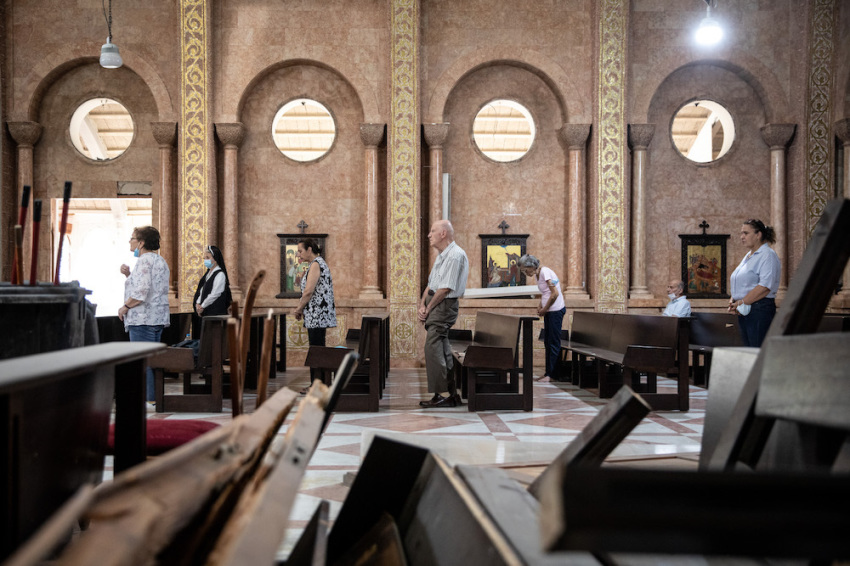Christians battling land-grabbers in Beirut after explosion leaves 300K families displaced

The blast in Beirut earlier this month has not only killed some 200 people and displaced about 300,000 families but also threatens to change the demography of Christian districts as land-grabbers are seeking to take advantage of the grim situation.
“There are people trying to profit from this catastrophe and buy land and homes from the Christians,” the Catholic charity Aid to the Church in Need quoted a local partner, Monsignor Toufic Bou-Hadir, as saying.
“People want to stay. A number of the old people, and younger ones, too, are staying in their homes, even ones that are damaged,” added Bou-Hadir, director of the Maronite Patriarchal Commission for Youth.
“With all respect to people who hold other religious beliefs, we cannot sell Christian homes to others. We do not want to change the demography. The land does not only have material value. It is our dignity. It is where we have our roots.”
The blast occurred on Aug. 4 when hundreds of tons of ammonium nitrate become a deadly, powerful force at the port area. The cause of the blast was either negligence or “external action, with a missile or a bomb,” Lebanese President Michel Aoun said.
Roland Alford, managing director of Alford Technologies, told Reuters that it is one of the largest nonnuclear explosions of all time. It affected about half of the city.
According to Britannica, Beirut is divided between Christians and Muslims, with the eastern part of the city being "almost solidly Christian" and the west being "predominantly Muslim." A number of neighborhoods in the Christian half were destroyed.
Church leaders had recently lobbied politicians to pass a law preventing Christians from selling their homes. Speaking at Beirut’s damaged Maronite Cathedral for a night vigil, Archbishop Paul Abdel Sater also urged Christians not to lose faith in their future in the city.
While Christian youth are helping by volunteering to rebuild affected areas, Arabic Christian broadcaster SAT-7 is focusing on offering hope, according to CBN News.
“We started to broadcast prayers and for people, for their safety for those who lost loved ones and for the responsible people in the government — the government positions, so God may open their eyes so we can save people from this misery,” George Makeen, director of SAT-7 Arabic Channels, was quoted as saying.
Juliana Sfeir, SAT-7’S academy brand manager in Beirut who’s been reporting from the ground, explained that the Lebanese had never experienced anything like this explosion even in 15 years of civil war.
“They have lost hope in the future,” Sfeir wrote in a Facebook post. “Please pray for protection from another civil war. Please pray for protection from emigration as well. A lot of our young people will want to leave now. Please pray for us here at SAT-7 to be the church that heals.”
Rami Shamma, field operations director for World Vision-Lebanon, told The Christian Post earlier that he felt the blast about 30 kilometers from Beirut. He said it reminded people of the war.
“Part of the port that was destroyed was the same part destroyed in the Lebanese civil war,” Shamma said. “Everything we see took us back 15 years to what took place ... We don’t have bullets in the buildings, but everything is shattered and on the ground. The images were terrifying.”
Hospitals, already stressed by COVID-19 patients, have been overrun after the blast, according to Shamma. Injured people who go to the hospitals that are “already weak” experience long wait times. Four hospitals were also heavily damaged from the blast, causing capacity issues.
World Vision is assisting Lebanese people affected by the blast in various ways. Shamma said that basic needs such as food, water and shelter are the focus in Lebanon, but emotional healthcare is also being provided, which is crucial for Lebanese children.



























